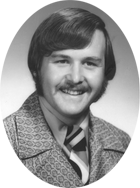Open Full Navigation
We're sorry but the candle you have selected is currenty in the process of being purchased or has just recently been purchased.
Please feel free to select another candle or check back in 15 minutes to see if the candle you have selected has been released for purchase.
Thank you.
Okay
We're sorry but there are no candles available for lighting.
Thank you.
Ok
You have already begun a candle purchase session. If you would like to continue with your current candle choice please click "Continue" otherwise please click "Select Another".
Thank you.
Select another
Continue

In Memory of
Brant Ralph
Perry
Perry
1953 - 2016
Click above to light a memorial candle.
This Book of Memories memorial website allows family and friends a place to re-visit, share and enhance this tribute for future generations.
Menu
- Obituary/Notice
- Condolences and Tributes
- Light a Memorial Candle
- Send Flowers
- Service Details
- Memories
- Share
- Help
- Book of Memories
Hall's of Waldoboro
949 Main St
Waldoboro, Maine
UNITED STATES
04572
In the event that there is an error
in the information presented,
please contact the funeral
home by clicking here.
Interview with Brant original published in Big Time Music Trade Magazine
This is the Interview of Brant Ralph Perry that was in Issue 2 of Big Time Music Trade Magazine. Published in July of 1997.
Brant Ralph Perry
Original Drummer for the Zen Band
BIG TIME : Hi, we're live on tape with Brant. You're on.
BRANT : Thank you. In the latter part part of '67, the beginning if '68, I formed the Zen Band. I formed the band with lead guitarists Norman Wrightout, and several musicians form the Whitefield/ Wiscassett area. We used to play at Fendies lunch, in North Whitefield, but we never got paid for the gigs. In 1969, I made the decision to do original material and not copy other musicians tunes.
In 1974, we got together for another version of the Zen band. First, Drew Scannon from Saco, played with us for a while. Replacing Drew on bass was Frank Lola. Frank was a Viet Nam vet with a lot of electrical experience. He had 15-15" Bass speakers, due to the combination of lots of amplification with a small P.A. system. I was also the member of the band who got the gigs, which was basically renting out halls. We would charge $3.00 - $4.00 at the gate and turn that money over to get gigs elsewhere. We used to play 12 hours at a time. Every year we played the Whitefield Harvest Party. The lead guitarist at the time was Rip Wilson, who was an extraordinary musician, as well as a Viet nam vet, and an experienced U.M.A. music student. Rip was very dependable and a hard working lead player. Our rhythm guitar player was Byron Norton. Byron was an incredible song writer, and he was one of my best friends. When we played places, between 400 - 600 people showed up. We had parties and back then you would seldom see any type of trouble. There was a lot of hard drugs and drinking, and to this day, I believe that was the main downfall of us not being a thorough success. From 1974 - 1977 was when we were into hard drugs and alcohol.
Norman Wrightout believed in, "psyche out power." We used to psyche out the audience, but still keep it together. It was a lot of wild rhythms, more of an almost white soul type of Rock and Roll. If we did cover tunes, we did them our way; not the way the recording artist did, and people loved the energy. When I came off stage, all of my clothing would be soaked and drenched with sweat. This was after a gig that was only 4 hours. One time we had a $3.00 a head gig, at a small building where 600-800 people showed up. People kept rotating through the doors all night long. This is when I had trouble with drugs and I couldn't play in the band. Rick, our lead guitarist at the time, asked me if I would like to go to the gig that night. When I showed up, the drummer had a appendicitis attack, and I got called up to play the drums that night. I was on anti-depressants, and by the 3rd song in, there were no anti-depressants in my body, and my stage name was Doctor Breeze. I was kicking butt on the drums, the band was jiving, and the place was hopping, with people screaming down front. We literally took the floor out of the hall where we were playing in. People were jumping up and down so hard that the floor was wrecked. That was the Goodwill Hall in Chelsea Maine, that's still there today. After the gig, we went back to where we stored our gear in South Jefferson, and the guy who had discharged me, walked up to me and said: "Your the best drummer! No doubt about it." He really meant it, and we had a lot of good times. We worked hard and really pleased our audiences. The bottom line is we were out to have fun and make fun for other people. We were noted for having energy and having a dramatic way of turning on our audience. I think that's the key that the few bands have the opportunity to ever have done.
BIG TIME : Is your drumming technical or more artistic?
BRANT : Artistic, soul powered, and spiritual. I feel that true music is very spiritual experience. It's not a theory like a lot of people try to teach. I met guitarists who know every note on the guitar, but they don't have the psyche out power. They play every note on the guitar, sing in key, they play O.K.; but can't project their spirit and people can feel that. It's so sterile, It's bland. A good example of spirit is James Brown, that's why they call him the godfather of soul. He gets into the that psych out ability, taps into the audience, and the audience gets that two way street going. I met guys who could only play four chords on the guitar, but they could make the audience frantic with excitement. I know artists all through Maine, who are very talented but never had a lot of schooling. I know a piano player from North Whitefield, her name is Bonnie Hensbee. She's very talented on her instrument. I know several women singers in Maine with beautiful voices. I think that the younger people today are starting to realize that they are talented people, and can play as good. It's just that sometimes money, luck, and the circumstances that the younger people are feeling the same thing I felt growing up as a young man in Maine. They're learning what it took me 15 - 20 years to find out; that there's many things that play into the parable of the whole situation to make a great band. It's not necessarily all raw talent.
Music is probably one of the greatest tools that the Earth has. It's a way of life, and at 44 years old, after being clean for several years, I believe drugs are not the way to go. The thing they had back in the '60's about the message of love was right, but drugs was wrong. The whole perception is to stay together, to love one another and to keep Rock and Roll alive.
BIG TIME : What's stopping you from getting into a band now?
BRANT : I find that today, the people I come across are professional or not. Right now I have a studio at home and I am starting to do some recording. I am a song writer, as well as a drummer, and I can usually get a tune out on any instrument. I need to work with myself and keep doing the best I can. I can't pin-point why I'm not. If I do form a Rock and roll band, I need dependable people. It's like one of the things we learned while growing up, is about band practice. Musicians would say: "Well. I can't come because I have to put a motor in my '57 Chevy." Or, "My wife doesn't want me to come." You know the Rolling Stones were together for 25 years, and the manager held that band together for 19 of those years. People are human, people make mistakes. I find that right now, if I was going to put together a very professional band, it wouldn't be to play in bar rooms, it would be to record like in the 60's. Most of the bands that recorded in the '60's weren't a gigging out, traveling band; they were a recording band. The recording studio is really the way to go in Maine, because the club scene in Maine has died down. You don't have the really big clubs like Rachel's, and the Big Bounty in Bangor, anymore. I feel that if you want to promote music a good place is the grammar schools, where the kids need a chance. I think we need more people like Ester Hallowell. She was a devoted music teacher in Maine, who is still living as an elderly lady. If I had a Rock band that played out live, one of the things I would do is introduce 5 or 6 fathers or mothers and tel their names to tell the audience They lst a certain son or daughter to "Moshing." Mosh dancing is when they jump off stage and sometimes the people in the audience move back as the person dives off stage and gets a concussion, or dies. In the "Mosh Pit," people dance while hitting each other with fists or kicking each other. We would say the name and age of the person that died. We need to set an example. I found that young people will listen if you will come down to their level; not try to put yourself above them.
You can see the interview on Big Time Music Mag .com a division of Music trade magazine.com
Posted by Douglas Papa
Saturday October 1, 2016 at 2:51 pm
Recently Shared Condolences
-
On the first anniversa... (read more)
Recently Lit Memorial Candles
-
We are honored to prov ...(read more)
-
Remembering Brant and ...(read more)
Recently Shared Stories
-
This is the Intervi... (read more)
Cherishing Life Sharing Forever
This Book of Memories brings those affected by loss together by encouraging communication and self-expression. By giving friends and family a special place to tell their stories and express their feelings of loss, it helps them care for one another during a very difficult time. Click on any of the links to the right to access features or information within this memorial website.
52 Weeks of Support
It's hard to know what to say when your
loved ones experience loss. Our weekly newsletter provides insights,
quotes and messages on how to provide help during the first year.
Sign Up
Memorial Tribute Website Proudly Provided by:
Hall's of Waldoboro
949 Main St P.O. Box 363
Waldoboro, Maine, United States
Phone: 207-832-5541
Map | Directions | Contact Us
Hall Funeral Home of Thomaston
78 Main Street
Thomaston, ME 04861
Fax: 207-354-9577
Email: thomaston@hallfuneralhomes.com
Hall's of Boothbay
975 Wiscasset Road
Boothbay, ME 04537
Fax: 207-633-7220
Email: boothbay@hallfuneralhomes.com





